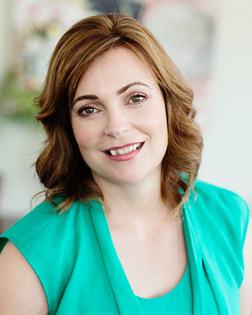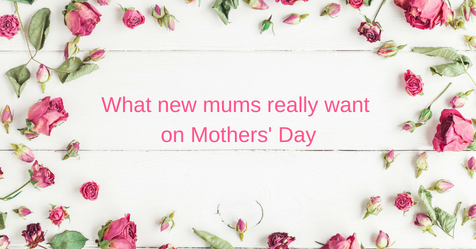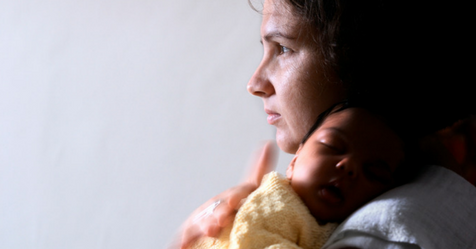|
Typically Mums carry the mental load. They find themselves managing a heap of hidden tasks that involve researching, planning and organising for the family. Remembering to buy those thoughtful birthday gifts for little friends, meal planning that caters to the health and idiosyncrasies of the family; organising, researching, scheduling and booking after school activities and play dates. Reading countless social media parenting posts with their children’s emotional well-being in mind. And this is just a snapshot of a mother’s brain. The work that goes on in our minds is invisible. You might see mum buying and wrapping the birthday gifts, shopping for food and cooking meals, driving to after school activities, going to play dates at friends’ houses. What you don’t see, is the thinking that goes on behind the scenes. Many of my clients struggle with this load, especially when their expectations of themselves are overly high or unrealistic. Many modern women say that they thought their partners or husbands were ‘modern guys’, men who valued gender equality, equal rights, in some cases even espousing the virtues of feminism. Then the children came. It can take women some time to realise the inequality that slips in behind the scenes. The default to traditional roles embedded in the psyche of their partners, and ironically, of themselves. The unfortunate result can be overwhelm and resentment. Resentment at their partners for happily allowing the load to fall on their shoulders, resentment at their partners for not understanding the extent of the load, and anger at themselves for enabling this inequity. Dr Gwyn Rees, psychologist at the Antenatal & Postnatal Psychology Network, makes the following suggestions:
https://www.gottman.com/ https://www.drdansiegel.com/ The problem with perfectionism is that there is no end to it. We may continue to strive to be better, but the goal posts keep moving, and perfection eludes us. Some people say that perfectionism has been a good trait in the workplace, something that has helped them to progress in their careers. Perfectionism shouldn't be mistaken for conscientiousness, drive, hard-work, commitment, care, or attention to detail. These qualities are certainly helpful in the workplace and in other settings. What this article is talking about is the extreme nature and bottomless pit of perfectionism. The kind of perfectionism that involves unrelenting expectations and standards for self and others, criticism of self and others, associated stress and anxiety, and commonly feeling dissatisfied or 'not good enough'.
Time and time again, we see new mums who with the best of intentions for their babies and families, are striving to be ‘perfect’ mothers – to parent in the ‘perfect’ way. The reason they are struggling, is often because this bottomless pit of striving sets them up to fail, and this perceived failure feels intolerable. There is typically a lifetime of layers beneath the surface of this striving, which is certainly worthy of exploration. Striving for perfection can seriously limit our capacity to enjoy life. Perfection-striving is often associated with all-or-nothing or black-and- white thinking. For example, the mum who won’t go to mother’s group if she is going to be late, misses out on the building of relationships with other mums (who are often late themselves). The mum who won’t exercise if she can’t exercise three times per week, misses out on the benefits of some exercise and a little time-out. The mum who won’t invite people over unless she gets the time to make the house look immaculate, misses out on the fun and spontaneity of having other new mums and babies around for her own and her baby’s social well-being. The mum who won’t let her partner settle the baby because he/she won’t do it like she does, misses out on her partner’s support and her partner's growing bond with the baby. The bottom line is that there is no one way, and there is no right way. When your hard and fast rules about how things should be, get in the way of the things that give your life meaning (i.e. the things that you really value) ask yourself if there is a middle ground? The middle ground is a place where we strive for being ‘good-enough’ mothers. Perfectionists usually see this term “good enough” as meaning mediocre. However, ‘good-enough’ means good enough. For example, getting to mothers group late is better than not going at all. It can be a good laugh and a supportive environment. Exercising whenever possible (despite wishing to achieve three exercise sessions per week) is better than nothing, and is likely to become easier to achieve over time. Inviting friends over, even if the house is untidy, shows them that you are human after all (very comforting for most people), and demonstrates that you value friendships more than your domestic high standards. Letting your partner settle the baby even if he/she does it differently to you, knowing that this is their chance to discover what works, and to establish a good bond. The middle ground is a much kinder place – a place of acceptance, and openness to experience. Try it. You’ll see. You might even find that not only can you be a 'good-enough' mum, you can be a great mum! If these tips are not enough, and your striving for perfection is causing you distress, it may be worthwhile to seek help. Written by Dr Renée Miller Principal Perinatal Clinical Psychologist Founder Antenatal & Postnatal Psychology Network Co-founder The Perinatal Loss Centre I’ve talked with many frazzled parents in the past few weeks. Mums and dads who have been grappling with the transition to life with a baby at home, or returning to paid work after a period of time away. Young children starting kindergarten. Older children anticipating and adjusting to the new demands of school life. Mums and dads have spoken of the flow of life being turned upside down. Tears, sleepless nights, anticipatory anxiety, self doubt and exhaustion. It has struck me that much of the stress we parents feel around these transitions comes from expecting things to go smoothly. Many of us approach these life changes with expectations that are unrealistic and unfair. Then, when we experience adjustment struggles, often trying so hard to get things ‘right’, self criticism and self blame can quickly follow. For example, adjusting to life with a baby. The antenatal classes, the reading and the daydreaming don't prepare us for the upheaval, chaos and sleeplessness that inevitably occurs. Stepping into parenting for the first time is one of the biggest transitions we make in life, and many of us expect to move seamlessly from one stage of life to the next, without missing a beat….or perhaps we do allow ourselves a period of adjustment but soon start saying things like, "I should know what I’m doing by now!"….and feeling inadequate as a result. Then there are the unexpected, unwanted events and experiences that arise…the ‘curve balls’ that life throws us from time to time and the ‘adjustments’ that are made to accommodate these experiences. Infertility, loss, illness. Interestingly, even these events seem to come with a set of expectations or judgments; “I should be over this”, “what’s wrong with me”’ “I should be able to cope with this.” Transitions, losses, unwanted experiences will continue to happen for all of us…these things are part of being human. However, there is a more supportive way to approach these experiences which can ease the associated suffering. Self compassion. There is a growing body of research behind self-compassion, demonstrating that it can be extremely helpful at times of struggle. Self-compassion is the antidote to our inner critic. It is the kindness we bring to ourselves when we feel like we’ve failed, or when we experience pain or loss due to forces beyond our control. You may be thinking thoughts like these: “I should love being a mother, what’s wrong with me?” “Why am I the only one who’s not coping?” “I should feel better by now ” “My child is never going to be happy at school” ”I hate feeling like I don’t know what I’m doing”, Self-compassion (with a deep breath and a kind voice) sounds like this: “There are no rules about how parenting should feel” “We are all learning as we go” “I can cope with making mistakes and learning from them” “Most new experiences are stressful at first. My child will adjust over time” “I can cope with not knowing what I’m doing, and can ask for help if I need to”. An important ingredient in taking a kinder, more compassionate stance towards ourselves is acknowledging that it is part of being human to sometimes make mistakes, to not be who we wanted to be, or to have unwanted experiences happen to us. Tapping into this universal experience of human suffering or struggle can be comforting and reduce feelings of isolation…”why am I the only one not coping?” becomes “we all feel like we are not coping at times.” Self compassion can be as simple as thinking about what you would say to a friend or a loved one who is experiencing the same struggle or difficulty as you, and applying your kind words to yourself. It won’t change the difficult situation, but it will remove the added pressure of self criticism and increase your capacity to adjust to whatever it is you’re struggling with. If you’d like to learn more about Self Compassion, Kristen Neff (a self compassion researcher) has a great website: www.self-compassion.org Mums often feel stressed and overwhelmed by the never ending ‘to-do’ list. When we become parents, there are countless things to be done.
Attending to the many and varied needs of our child/children, washing, cooking, cleaning, shopping, folding, tidying, arranging outings, drop offs, pick ups, medical appointments, and on it goes. In the midst of the perpetual ‘to-do’ list, mums often just keep doing - driven by the desire to feel a sense of completion. The problem is that the completion is rarely attained. We chase our tails trying to finish the list, only to bear witness to its endless regeneration. We stay up late to get things done, we permanently feel exhausted, becoming less efficient and more overwhelmed by the looming list. As a result, we beat ourselves up for not achieving what we’d hoped. With the weight of this inner turmoil, we can become more stressed, less patient, and more snappy. Then, we feel even worse about ourselves. So how do we change this vicious cycle? CHANGE YOUR EXPECTATIONS Let go of the need to experience the full completion. Allow yourself to feel satisfied by achieving one thing at a time. Change your relationship with the idea of “getting it all done”, and let yourself feel gratification from getting something/some things done. In other words, change your expectations about what is achievable. By all means, keep a ‘to-do’ list so you don’t have to store things in your head, but accept that the list is ever evolving. ADD THE REALLY IMPORTANT THINGS YOU DO TO YOUR ‘TO-DO’ LIST Mums are notoriously bad at recognizing and valuing the things they do achieve. Yes, these are the things that may prohibit certain other tasks from getting done, but they are the things that matter the most – attending to the needs of our children. Instead of feeling frustrated that you haven’t achieved the tasks on your list, write down what you actually are achieving. For example, “respond when baby cries” (tick), “feed baby” (tick), “keep baby safe” (tick), “cuddle baby” (tick), “talk to baby” (tick), “settle baby” (tick), “change baby” (tick)… you get the idea. “Play with toddler” (tick), “soothe toddler” (tick), “attend to sharing issues” (tick), “feed toddler” (tick), “read to toddler” (tick)… These things can take a good part of the day (and much of the night), but if you value them, you might feel less frustrated by not having achieved other tasks on list. This might allow you to feel a sense of mastery over what you have achieved, rather than a sense of inadequacy over what you have not. ADD ‘TO-BE’ TO YOUR ‘TO-DO’ Step off the ‘to-do’ treadmill and think about adding ‘to-be’ to this list. Do you set aside time to stop? Do you give yourself time to just think, sit and have a cup of tea, read, breathe deeply, contemplate, talk to a friend? It’s ludicrous to think you can just keep going, without time to relax, reflect, and rejuvenate. The other part of ‘to-be’ is to think about how you want to be. How do you want to be as a mother? How do you want to be as a spouse? How do you want to be as a daughter, friend, individual? For example, you may want to be “more calm”, “more patient”, “more fun”. To help you to make these changes, Dr Renée Miller from the Antenatal & Postnatal Psychology Network and Dr Nicole Highet from COPE (Centre of Perinatal Excellence) designed a ‘to-do to-be’ list for you to download and use for 2019. HOW TO USE IT
SUMMARY Change your expectations about what is achievable, and you might be kinder to yourself. Gain some perspective on what you actually do achieve, and you might feel better about yourself. Keep a ‘to do’ list to stay on top of what needs to be done, but don’t expect to get it all done, and don’t attach your self-worth to completion. Value your role as a mother and your self-worth might get a boost. Incorporate and schedule just ‘being’ so you can rejuvenate and be a better version of yourself (without guilt). This might help you to feel less stressed. Decide how you want to be, and set your intention with each new ‘to-do to-be’ list, so you can reflect objectively on your expectations in line with the person you want to be. When you’re clear on how you want to be, your ‘to-do’ might look a little different. Download our 'To-do to-be' list here With seventeen years' experience as an early motherhood Psychologist, Dr Renée Miller shares her insights into what new mums really want on Mothers' Day.
"No gift compares to words of appreciation, acknowledgement and love" says Renée. "There’s nothing quite like a beautiful card with heartfelt words". So Dads and partners, looking for ideas for Mothers' Day, this is what mums want to hear: Thank you for carrying our child, enduring the changes and discomforts of pregnancy, and for your tenacity and strength in giving birth to our baby. You were amazing. Thank you for thinking of our child’s well being 24/7, and for constantly anticipating what he/she might need ahead of time. I can only imagine how tiring this must be. Thank you for nourishing our child with food, love and tenderness. Thank you for the countless hours you’ve been barely awake tending to our baby alone at night. Thank you for playing games and entertaining our child even though there are so many other things you’d like to be doing (like sleeping). Thank you for pushing through your exhaustion and for being there when things aren’t easy. Thank you for diligently inquiring or reading about parenting practices to be the best mum you can be. Thank you for guiding me in my parenting (even if it comes out a little impatiently sometimes). I know you have our child's interests at heart. Thank you for the mammoth adjustment you’ve made to becoming a mother, for letting go of so much of the old you, and for going through re-defining yourself as a woman and a mother. Thank you for all that you do to make our house a home. [Words of love…..] [Pledge to give Mum time-out to rejuvenate, time to catch up on sleep, and time together to nurture your relationship.] [A gift won't go astray. Just not one that's related to housework, cooking, caring for others... you get the idea] Dr Renée Miller is the Principal Clinical Psychologist and Founder of the Antenatal & Postnatal Psychology Network Sometimes, research confirms what we already suspect. Time out is good for mothers’ mental health. Perinatal Psychologist and researcher, Dr Hannah Woolhouse, has worked on the Maternal Health Study for nearly 15 years. This study was conducted in Melbourne Australia, by the Healthy Mothers Healthy Families research group at Murdoch Childrens Research Institute. Over 1500 women joined the study in early pregnancy, and were followed up with questionnaires after the birth. Hannah describes for us what the study found about time out in the early postnatal period. What did the study find?
At 6 months postpartum, around 1 in 6 women reported that they NEVER had time for themselves, when someone else looked after their baby. There was a strong connection between time for self, and the prevalence of depression. The rate of depression steadily increasedas the frequency of time for self decreased. The lowest prevalence of depression was 6% for women who had time for themselves once a week or more. Comparatively, the prevalence of depression was 15 % (almost three times higher) in women who neverhad time for themselves. Even after taking into account other associated factors (such as having a supportive partner),women who had time out at least once a week were less likely to report depressive symptoms at 6 months postpartum. In other words, whether women are in a relationship or not, and whether or not they have good emotional and practical support, getting weekly time-out appears to improve mental wellbeing What sorts of things did women do when they had time for them self? In the Maternal Health Study, the most commonly reported activity was doing the supermarket shopping – not something you would necessarily think of as relaxing! Other activities commonly reported were going out with their partner, having a long bath or shower, going to the hairdresser, or putting their feet up and watching TV. We suspect that what women do when they have time for themselves may not matter so much as that someone else looks after the baby for a period of time – meaning that women get a break from that responsibility, and a chance to recharge their batteries. What’s the take-home message? We know that the majority of childcare responsibilities still fall to women. The more equally partners canshare the demands of looking after a new baby, the healthier mothers will be. Ensuring that women get regular and frequent time out from the demands of caring for a new baby is a simple and effective way of promoting good maternal mental health. While this is a simple option, it is not necessarily easy, as it requires the support and input of others. Partners, family and friends play an important role in encouraging women to take time for themselves, giving them permission to take time out from being with their baby, and helping to look after the baby for a period of time. A common block for mums is the belief that they “should do it all” and cope with the demands of caring for a new baby on their own. These beliefs make asking for help difficult. In my clinical work, as part of the Antenatal & Postnatal Psychology Network, I strongly encourage women to challenge these beliefs, as looking after their own emotional health is one of the best things they can do for themselves and their children. Dr Hannah Woolhouse is a Perinatal Psychologist with the Antenatal & Postnatal Psychology Network. Hannah is located in Mornington and Red Hill on the Mornington Peninsula. Links https://www.antenatalandpostnatalpsychology.com.au/dr-hannah-woolhouse.html https://www.mcri.edu.au/users/dr-hannah-woolhouse https://theconversation.com/new-mothers-making-time-for-themselves-reduces-chance-of-postnatal-depression-51808 You’re a new mum. You hear it said often: “It’s normal to feel anxious” – but is it? Clinical Psychologist, Dr Renée Miller from the Antenatal & Postnatal Psychology Network, talks to Bubba West about postnatal anxiety. All new mothers experience some anxiety. Let’s face it, you're in a new role, arguably the most important one there is. You’ve never cared for an infant full-time before. This vulnerable baby depends on you for his or her physical and emotional safety (which can be particularly challenging if your own childhood was not physically or emotionally safe). And on top of all that, you are on call 24 hours a day in a body that has been through significant hormonal changes. You are sleep deprived and you are adapting to a multitude of changes in your life.
So yes, some anxiety is ‘normal’. In fact, we need a certain amount of anxiety – ‘optimal anxiety’ – to be motivated to function well, to solve problems as they arise, and in a primal sense, to keep physically safe from predators (what is known as the ‘fight-flight’ response in our biological wiring). In motherhood, this translates to having a certain amount of anxiety to be vigilant enough to keep our babies safe, to perform the many tasks involved in caring for our babies, and to prepare or plan for future possibilities (eg. an upcoming feed or nappy change). But what happens when this vigilance turns into hyper-vigilance? What happens when a feeling of impending doom creeps in, a feeling of dread, a constant fear that something bad is around the corner? You notice a sick feeling in the stomach, a knot in the chest, heart palpitations, constant worry, exhaustion but you feel too ‘wired’ to sleep, or worse - intense panic. These feelings are not ‘normal’. These feelings suggest that anxiety is no longer optimal, but has become a problem. And anxiety like this can be debilitating. Most people know about postnatal depression – feelings of sadness, negative thinking, tearfulness, loss of pleasure, lack of motivation, hopelessness, and/or dark thoughts. Health practitioners are therefore more likely to ask whether you are feeling sad or blue than to ask if you are feeling unduly anxious or agitated. However, postnatal anxiety is common and can occur alongside postnatal depression or on its own. My research showed that 10% of new mums were anxious or stressed, but were not in fact depressed. This finding means that if we focus on depression as the only mental health problem in the postnatal period, women who experience problematic levels of anxiety may not recognise the problem, and may not be helped appropriately. It is not uncommon for postnatal anxiety to be minimised as a ‘normal’ experience of new mothers – both by health practitioners and by new mums themselves. Recognizing the extent of postnatal anxiety, PANDA recently changed its focus from postnatal depression to postnatal anxiety and depression - now known as Perinatal Anxiety and Depression Australia. If you are feeling worried, fearful, panicky, uptight, overwhelmed, or having obsessive thoughts, you may be experiencing postnatal anxiety. If you are constantly worrying about things that could go wrong in the future (‘what if’ thoughts), you may be experiencing postnatal anxiety. If you are distressed by your anxious feelings and your symptoms are interfering with your life (eg. avoiding going out, not sleeping, obsessively checking on your baby, seeking constant reassurance from others), you may be experiencing postnatal anxiety. It is important to talk about these feelings. You can begin by calling PANDA for free, confidential telephone counselling (ph. 1300 726 306). You can talk with your Maternal and Child Health Nurse, your GP, or a psychologist who is experienced in treating women in the postnatal period. Everyone’s experience of postnatal anxiety differs. However generally speaking, counselling for postnatal anxiety involves:
In some cases (and in consultation with your GP or a perinatal psychiatrist) medication might be required alongside talking therapy. Remember, not all anxiety is normal for new mums, and help is available. Written by Dr Renée Miller for Bubba West, Edition 4
Striving for perfection can seriously limit our capacity to enjoy life. Perfection-striving is often associated with all or nothing or black and whitethinking. For example, the mum who won’t go to mother’s group if she is going to be late, misses out on the building of relationships with other mums (who are often late themselves). The mum who won’t exercise if she can’t exercise three times per week, misses out on the benefits of some exercise and a little time-out. The mum who won’t invite people over unless she gets the time to make the house look immaculate, misses out on the fun and spontaneity of having other new mums and babies around for her own and her baby’s social well-being. The mum who won’t let her partner settle the baby because he/she won’t do it like she does, misses out on her partner’s support and her partner's growing bond with the baby.
The bottom line is that there is no one way, and there is no right way. When your hard and fast rules about how things should be, get in the way of the things that give your life meaning (i.e. the things that you really value) ask yourself if there is a middle ground? The middle ground is a place where we strive for being ‘good-enough’ mothers. Perfectionists usually see this term “good enough” as meaning mediocre. However, ‘good-enough’ means good enough. For example, getting to mothers group late is better than not going at all. It can be a good laugh and a supportive environment. Exercising whenever possible (despite wishing to achieve three exercise sessions per week) is better than nothing, and is likely to become easier to achieve over time. Inviting friends over, even if the house is untidy, shows them that you are human after all (very comforting for most people), and demonstrates that you value friendships more than your domestic high standards. Letting your partner settle the baby even if he/she does it differently to you, knowing that this is their chance to discover what works, and to establish a good bond. The middle ground is a much kinder place – a place of acceptance, and openness to experience. Try it. You’ll see. You might even find that not only can you be a 'good-enough' mum, you can be a great mum! If these tips are not enough, and your need for perfection is causing you distress, it may be worthwhile to seek help.
I want you to be happy, but this doesn’t mean being happy all the time. No one is happy all the time. Having the expectation that you should be happy all the time, will make you feel more unhappy. I want you to ask for help when you need it. Being able to be vulnerable, and to express your vulnerability, is a great strength. Asking for help does not mean you’ve failed. It means that you are willing to learn, grow and be the best you can be. I want you to know that all feelings pass – the bad and the good. That everything evolves and changes and that we don’t need to fear nor strive for particular feelings because they are transient. When you feel like everything is too hard, remember that things will look different tomorrow. I want you to know who you are, and to define yourself by your values, not by how you look, or by how you perceive others see you. You can never know or control what others think. But you can know, that the way other people think is an indication of who they are, not who you are. I want you to respect yourself by doing things that are self-nourishing (including having uproarious amounts of fun). But only do things you feel comfortable with. You hold the barometer of your own comfort. Check in on your level of comfort in situations you might feel swayed. I want you to find meaning in your life. This will be an evolving process. Only you hold the measurement of what is meaningful to you. Look inwards, not around you for your own definition of meaning. I want you to know that giving to others brings great joy. Be sensitive to the needs of others and give of yourself. This doesn’t mean losing yourself to the needs of others. It means stepping outside of your striving for happiness through material things or achievements, and give love to others. I want you to know that you were born with self-worth. Anything that has diminished your self-worth over time, is changeable. Your thoughts are not truths unless you believe them. Other people’s words are not truths unless you believe them. You have the choice to see yourself in a positive, self-compassionate light. Appreciate the unique person you are. There is no one else on earth like you. Just by being you, you are worthy. Treasure your uniqueness, open your mind to experiencing the fullness of life, and know that you are loved. Mum xx Written by Dr Renée Miller (Perinatal Clinical Psychologist) Antenatal & Postnatal Psychology Network Dedicated to my beautiful girls.
Among these women are those who doggedly juggle the demands of work, home and children. Women who commit much of their time and energy to their children's special needs. And women who are parenting alone. Despite the depths of exhaustion and depletion, these women face their difficulties and work at being the best versions of themselves.
The second group of women is a group that constantly touches our hearts. Women who have risen from the trenches of despair after losing their much wanted babies. The heartbreak of miscarriage, stillbirth, and neonatal loss. The stress and helplessness of babies behind the plastic crib in special care nurseries. The women who face the agonising emotional rise and fall of fertility treatment and infertility. We are in awe of how these women go on to find meaning in their lives, honour their lost babies, and help others who have experienced similar heartbreak. The third group of women is made up of our colleagues. Women who in their respective professions, dedicate their working lives to the betterment of women. In the field of perinatal health, obstetricians, gps, midwives, maternal and child health nurses, psychologists, psychiatrists, and social workers, all work to care for women during the profound and vulnerable stages of childbearing. These professional women (often juggling their own work and family demands), typically provide their patients with a responsiveness, compassion, and nurturance that has far reaching benefits for the community as a whole. You are all amazing! Written by Dr Renée Miller |
AuthorPosted by Dr Renée Miller Topics
All
|
|
We acknowledge and pay respects to the Elders and Traditional Owners of the land on which our psychologists practise.



















 RSS Feed
RSS Feed

